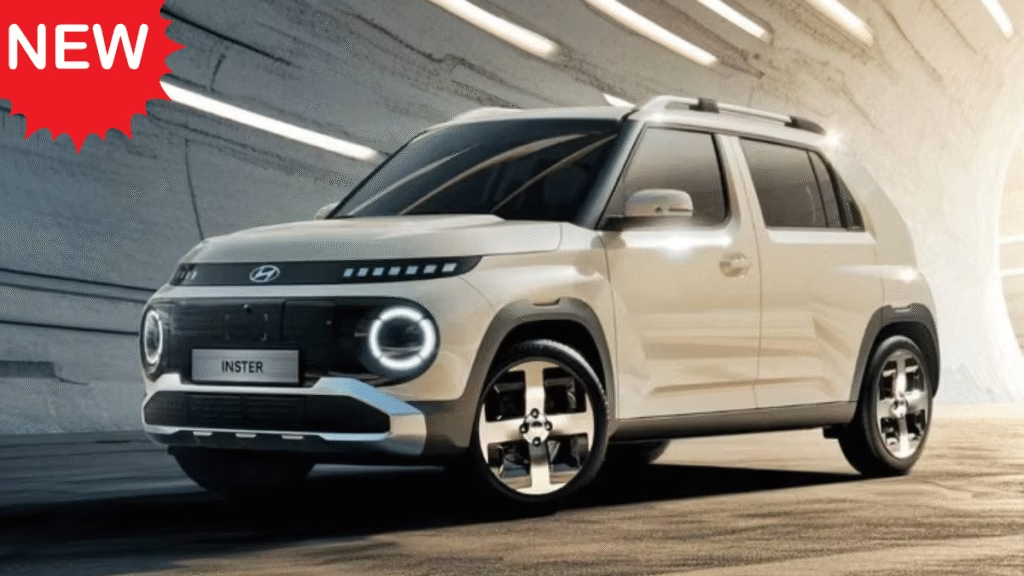The Hyundai Inster EV has emerged as one of the most anticipated electric vehicles in the compact SUV segment for 2025. Garnering international awards and praised for its design, technology, and value, the Inster sets new benchmarks in India’s growing electric vehicle market. Below is a detailed update on the Hyundai Inster EV’s features, specifications, pricing, launch timeline, and more, tailored for readers interested in affordable electric SUVs in India.
Hyundai Inster EV Overview
The Hyundai Inster is a sub-compact electric SUV debuting globally in 2025, designed as an urban electric vehicle emphasizing style, space, and computing technology. It shares its platform lineage from Hyundai’s small ICE Casper but enhanced for electric powertrain efficiency.
The Inster has been recognized as the 2025 World Electric Vehicle for its innovation and value, highlighting Hyundai’s commitment to electric vehicle technology.
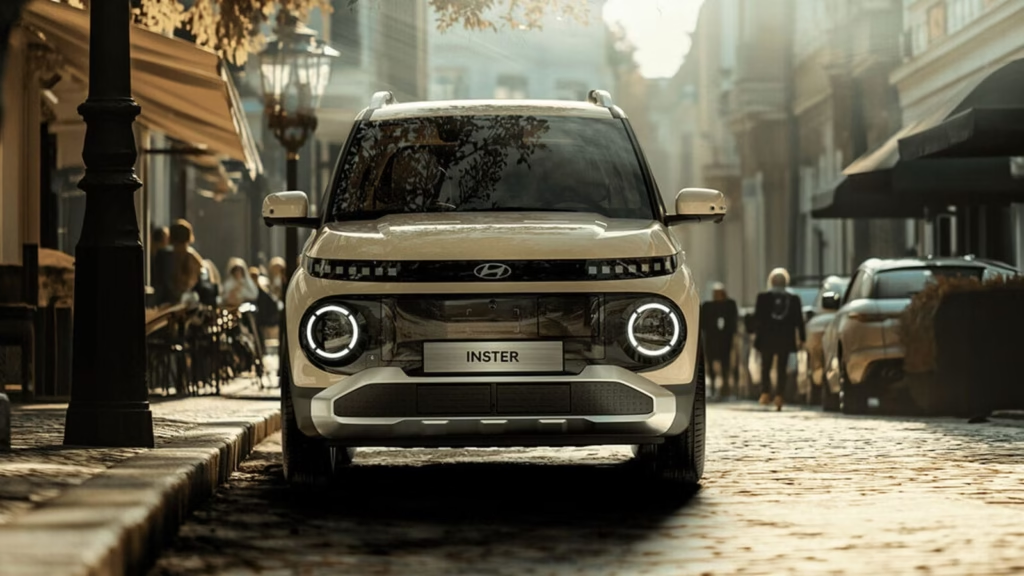
Hyundai Inster EV Specifications
Hyundai offers the Inster EV with two battery variants:
| Specification | Standard Range | Long Range |
|---|---|---|
| Battery capacity | 42 kWh | 49 kWh |
| Motor Power | 97 PS (71 kW) | 115 PS (85 kW) |
| Torque | 147 Nm | 147 Nm |
| Range (WLTP) | Over 300 km | Up to 355 km |
| Max speed | 140 km/h | 150 km/h |
| 0-100 km/h acceleration | 11.7 seconds | 10.6 seconds |
| AC Charging Time (11 kW) | 4 hours | 4 hours 35 minutes |
| DC Fast Charging (120 kW) | 10-80% in ~30 minutes | 10-80% in ~30 minutes |
Both versions come with front-wheel drive and benefit from a heat pump for energy efficiency. The battery chemistry used is Nickel Manganese Cobalt (NMC), which balances energy density and longevity.
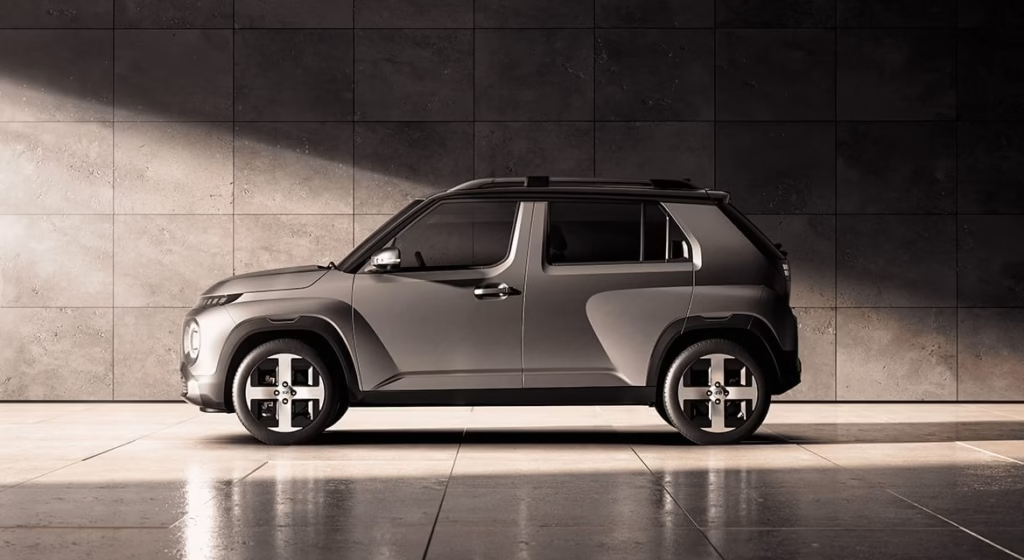
New Features of Hyundai Inster EV
The Inster boasts a comprehensive feature package, setting new expectations for compact EVs:
- Technology: Dual 10.25-inch displays (for infotainment and digital driver cluster), wireless Apple CarPlay and Android Auto, and ambient lighting with 64 colors.
- Safety: Multiple airbags (up to seven in international versions), 360-degree camera with blind-spot monitoring, and advanced driver-assistance systems (ADAS) like lane-keeping assist, adaptive cruise control, and automatic emergency braking. India variants may have some ADAS features limited.
- Additional Conveniences: Single-pane sunroof, heated steering wheel and driver seat, and vehicle-to-load (V2L) charging capability to power external devices.
- Charging: Supports both 11 kW AC regular charging and 120 kW DC fast charging for swift recharging.
These features create a rich, value-packed cabin environment ideal for urban commuting and small families.
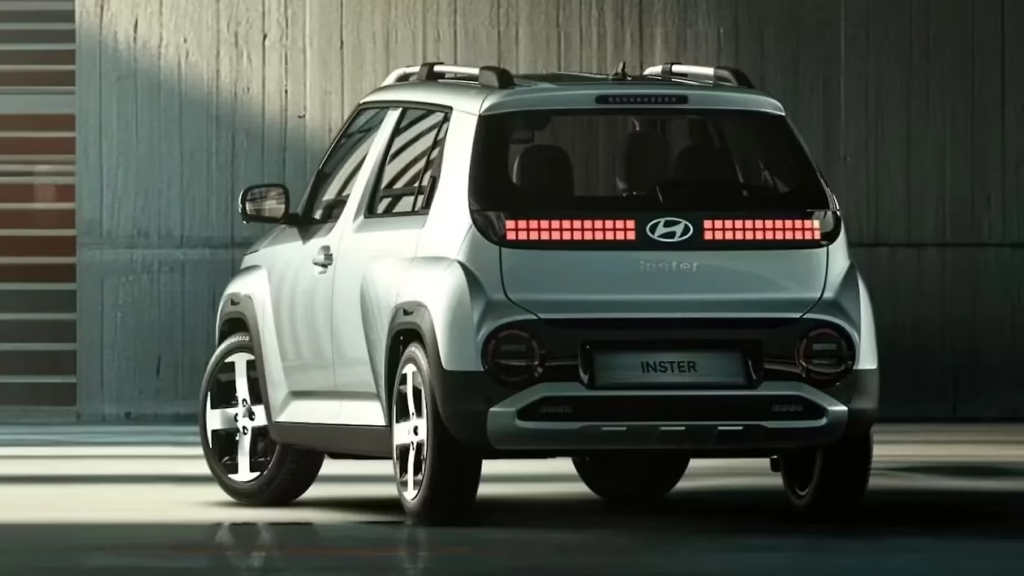
Hyundai Inster EV Price 2025 and Launch Details
In the Indian market, the Hyundai Inster is expected to launch by June 2026 with a competitive starting price around ₹12 lakh ex-showroom. This positions it as a direct rival to the Tata Punch EV and a premium alternative to other electric compact SUVs like the Citroen eC3 and MG Comet EV.
The Inster will be manufactured at Hyundai’s Sriperumbudur plant with localized components such as batteries from Indian manufacturers like Exide, supporting India’s push towards green mobility and electric vehicle technology development.
Hyundai Inster EV Range and Battery Insights
Offering a flexible range scenario to cater to different user needs, the standard 42 kWh battery promises 300+ km of range, refreshing in the segment for affordability and practicality. The further extended 49 kWh battery can achieve 355 km with WLTP certification.
The use of heat pump technology and energy-efficient components helps optimize real-world range, allowing drivers to realistically expect 140 km to 200 km per charge depending on conditions and usage (city vs highway).
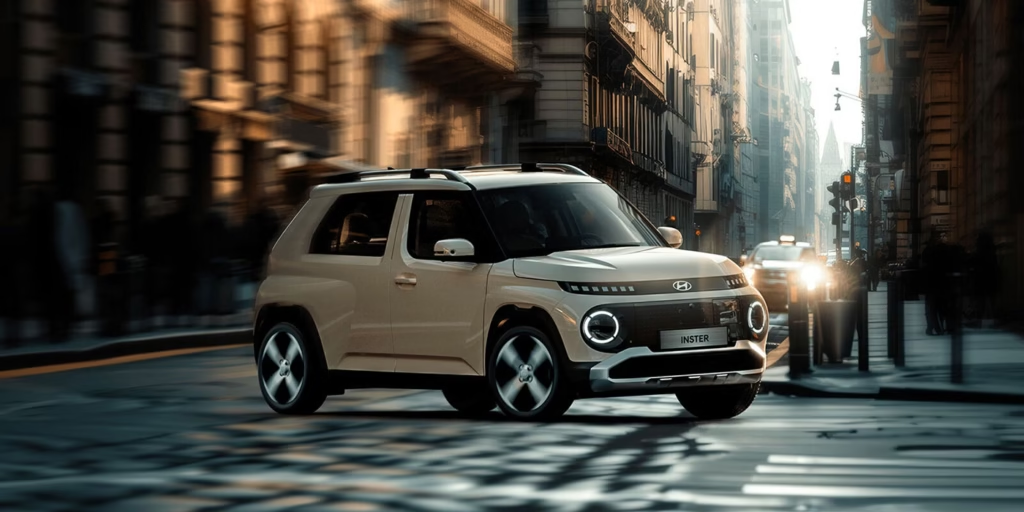
Hyundai Inster EV Charging Time
Charging times are an essential metric for EV adoption. The Hyundai Inster supports:
- AC charging (11 kW): Around 4 hours for full charge (standard) and 4 hours 35 minutes (long range).
- DC fast charging (120 kW): 10-80% charge in about 30 minutes.
These charging capabilities allow fast turnaround when using public rapid chargers, while home charging remains convenient with an estimated 4-5 hour full charge time at 11 kW.
Additionally, the vehicle-to-load (V2L) support is an attractive feature, offering users a way to power external devices on the go — perfect for outdoor activities or emergency use.
Pros and Cons of Hyundai Inster EV
Pros:
- Competitive pricing in the affordable electric SUV segment.
- Stylish design with a spacious cabin and advanced tech features.
- Good driving range suited for city and suburban usage.
- Fast charging capabilities with convenient AC charging.
- Comprehensive safety kit with advanced features.
- Vehicle-to-load charging provides added versatility.
Cons:
- India-spec may not have full ADAS as in international models.
- Limited seating capacity with 4-seater layout might not suit larger families.
- Range is modest compared to some higher-cost competitors.
- Charging infrastructure in India might still be a challenge for some users.
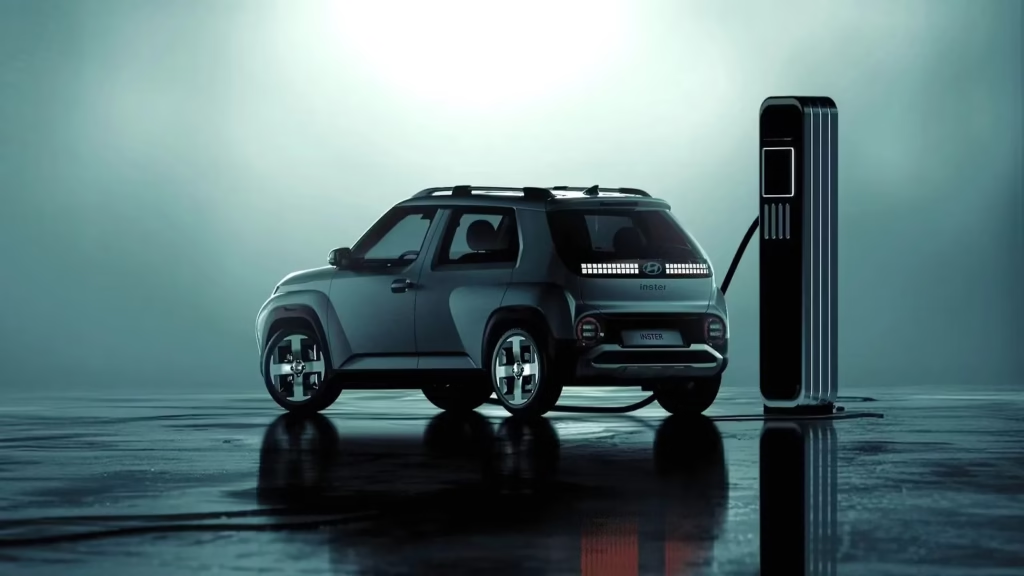
Hyundai Inster EV vs Competitors in India
| Model | Price (₹ Lakh) | Range (km) | Battery (kWh) | Charging Time (Fast Charge) | Features & Safety |
|---|---|---|---|---|---|
| Hyundai Inster | 12 (expected) | 300-355 | 42 / 49 | ~30 mins (10-80%) | Dual displays, ADAS, 7 airbags, V2L, Sunroof |
| Tata Punch EV | 10-12 | ~250-300 | ~35-40 | ~40 mins | Standard safety, infotainment |
| Citroen eC3 | 10-11 | ~320 | ~40 | ~30-40 mins | Compact, basic features |
| MG Comet EV | 7.5-9.5 | 250-300 | ~32-40 | ~40 mins | Feature packed, safety-focused |
Hyundai’s Inster stands out with its superior tech, battery options, and charging speed, making it a compelling option in the affordable electric compact SUV segment in India.
Conclusion
The Hyundai Inster EV promises a bright future for green mobility enthusiasts in India. With its combination of style, solid range, quick charging, and a feature-rich cabin, it captures the essence of what an affordable, practical electric compact SUV should be in 2025. As the launch approaches in mid-2026, the Inster is well-positioned to be a strong competitor in the expanding Indian EV market, attracting those looking for modern technology and sustainability at a reasonable price.
Frequently Asked Questions (FAQs)
When will the Hyundai Inster EV launch in India?
What is the expected price of the Hyundai Inster EV?
What is the driving range of the Hyundai Inster EV?
How long does it take to charge the Hyundai Inster EV?
Does the Hyundai Inster EV have advanced safety features?
How does the Hyundai Inster EV compare with Tata Punch EV?
This detailed update on the Hyundai Inster EV reflects the latest information from global launches, industry reviews, and upcoming Indian market specifics, helping buyers make informed choices about affordable, green mobility in 2025.
For more insights on electric vehicles and the future of green transport, visit authoritative EV resource sites and Hyundai’s official channels.
Chetan is passionate about cars and keeps a close eye on every new launch in the Indian automotive market. At AutoNewsWala, he writes detailed car reviews, covering design, performance, features, and value for money to help readers make smarter buying decisions. His expertise lies in simplifying complex automotive details into easy-to-understand insights for car lovers.

